2021.08.06
Moe Shop Interview
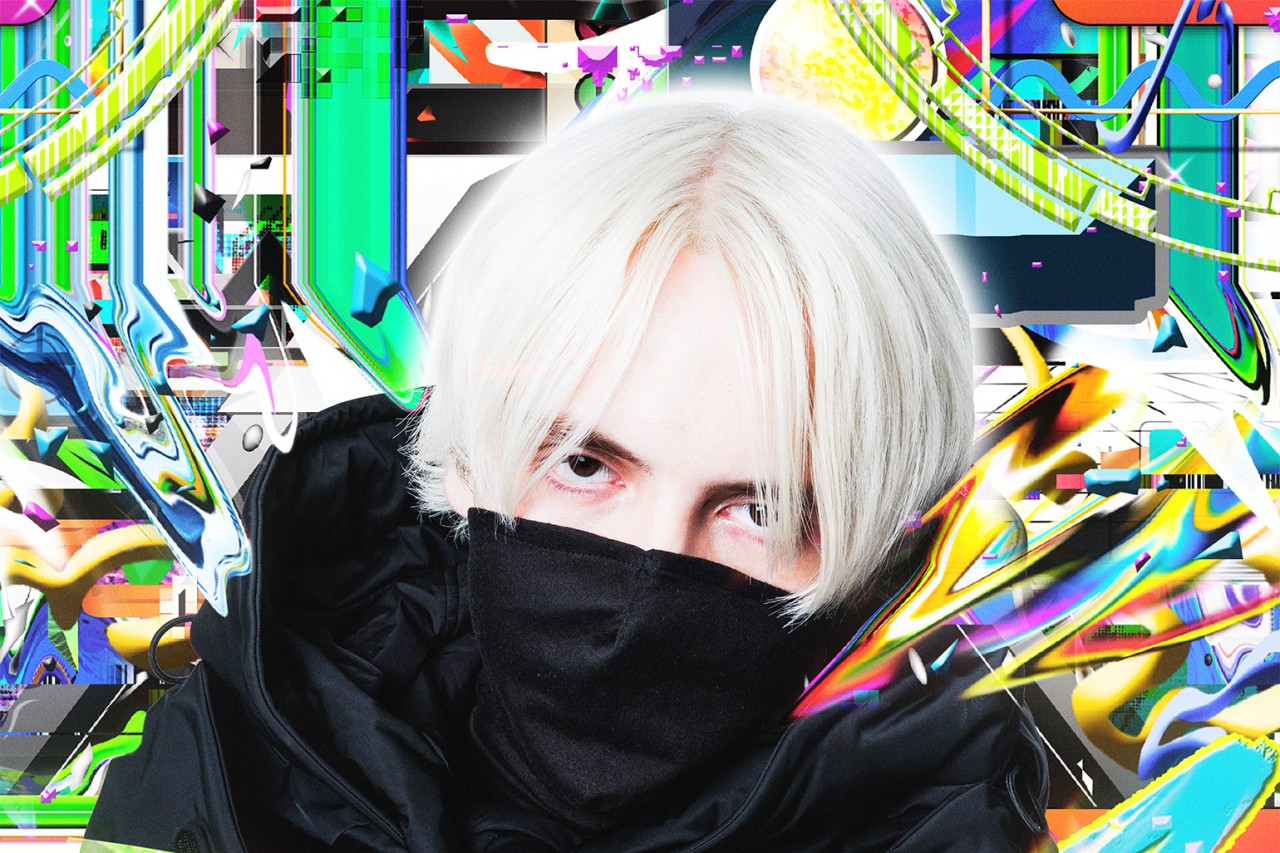
Please tell us about Moe Shop
Moe Shop : I'm a France-born trackmaker based in Tokyo, and I've been making house and other music genres for about ten years. I started producing when I was about 13 years old, so still in junior high school.
Growing up, everyone in my family was creative in their own way. My parents were into house and funk music, so I grew up listening to artists like Daft Punk, Mr. Oizo, and Earth Wind & Fire -- that's where the desire to start making music came from. I never received formal training; I just jumped into it because I was curious.
Back then, it was simply a fun hobby; to me, producing music was mysterious and cool, especially computer-based music. I remember just starting with FL Studio and getting into it.
Moe Shop's volca sample demo track
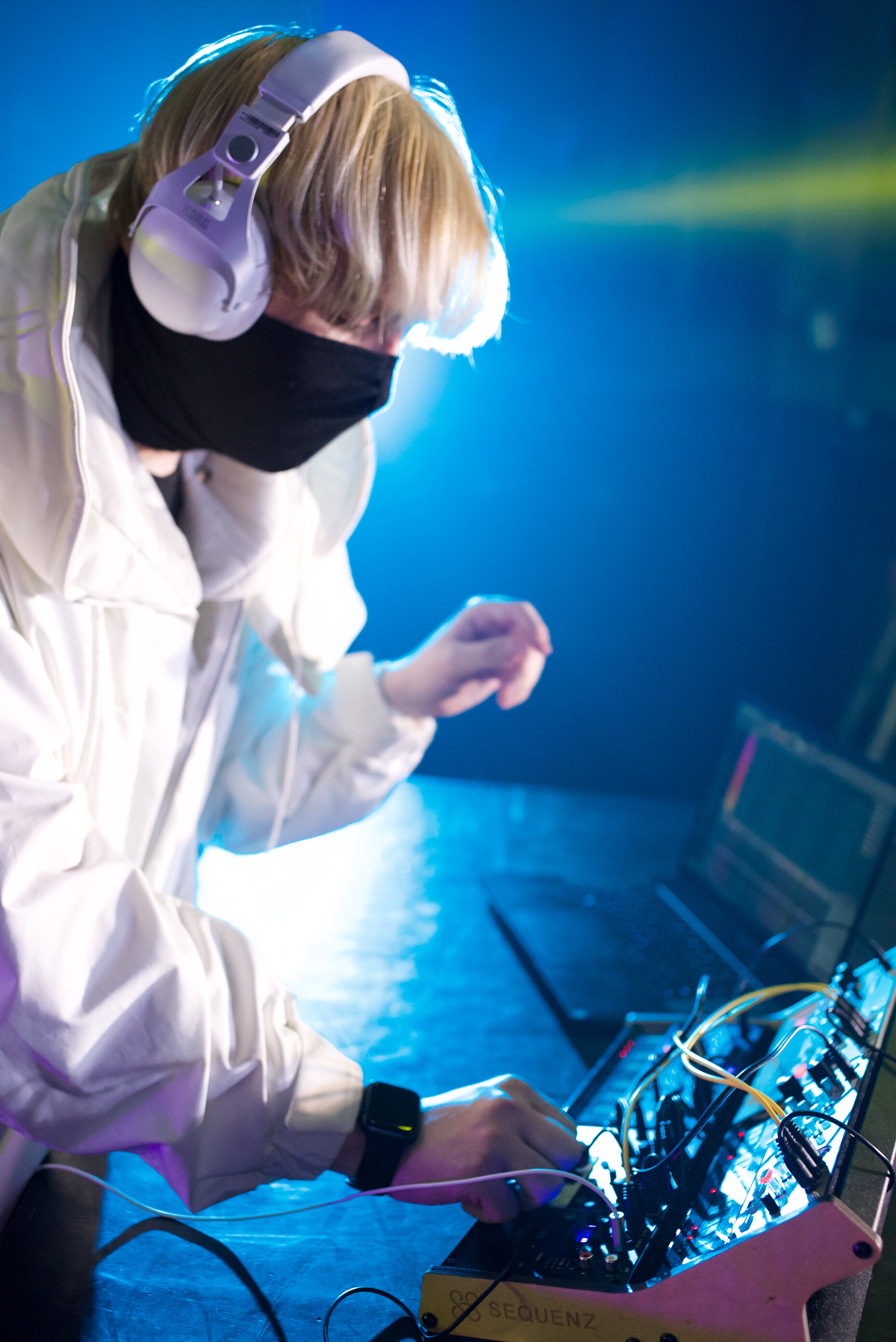
When did you transition from exclusively creating music on the computer to using hardware equipment?
Moe Shop : For the longest time, I was making music with just my mouse and keyboard, but one year on my birthday, I got a small MIDI controller. After playing around with it, I got curious about playing keys, so I got myself an 88 key weighted keyboard for practice.
I wasn't taking any lessons; I just started learning a bunch of anime songs that I liked. From there, I slowly started getting into hardware, and that's when I finally discovered synthesizers.
So basically, you were teaching yourself those songs by ear?
Moe Shop : Yeah, it was like ear training. That and a bunch of different YouTube tutorials were how I eventually got to where I am. I can't read sheet music, and at the time, I didn't know much about music theory, so it was all a very visual process. I would learn the notes mechanically, but in doing this over the years, I started learning more about the theory behind it all.
At what point did you realize that music was going to be your main path?
Moe Shop : Around the end of high school, it was a decisive moment having to choose what I wanted to do for my future. By the time I graduated, I had already been making music for almost six years, and I thought I was doing pretty well online. I tried going to art college for a couple of years, but as more and more revenue started coming in from platforms like Bandcamp, I decided I should just focus on music instead.
During that time, I was lucky to be surrounded by friends and family that supported me with that decision.
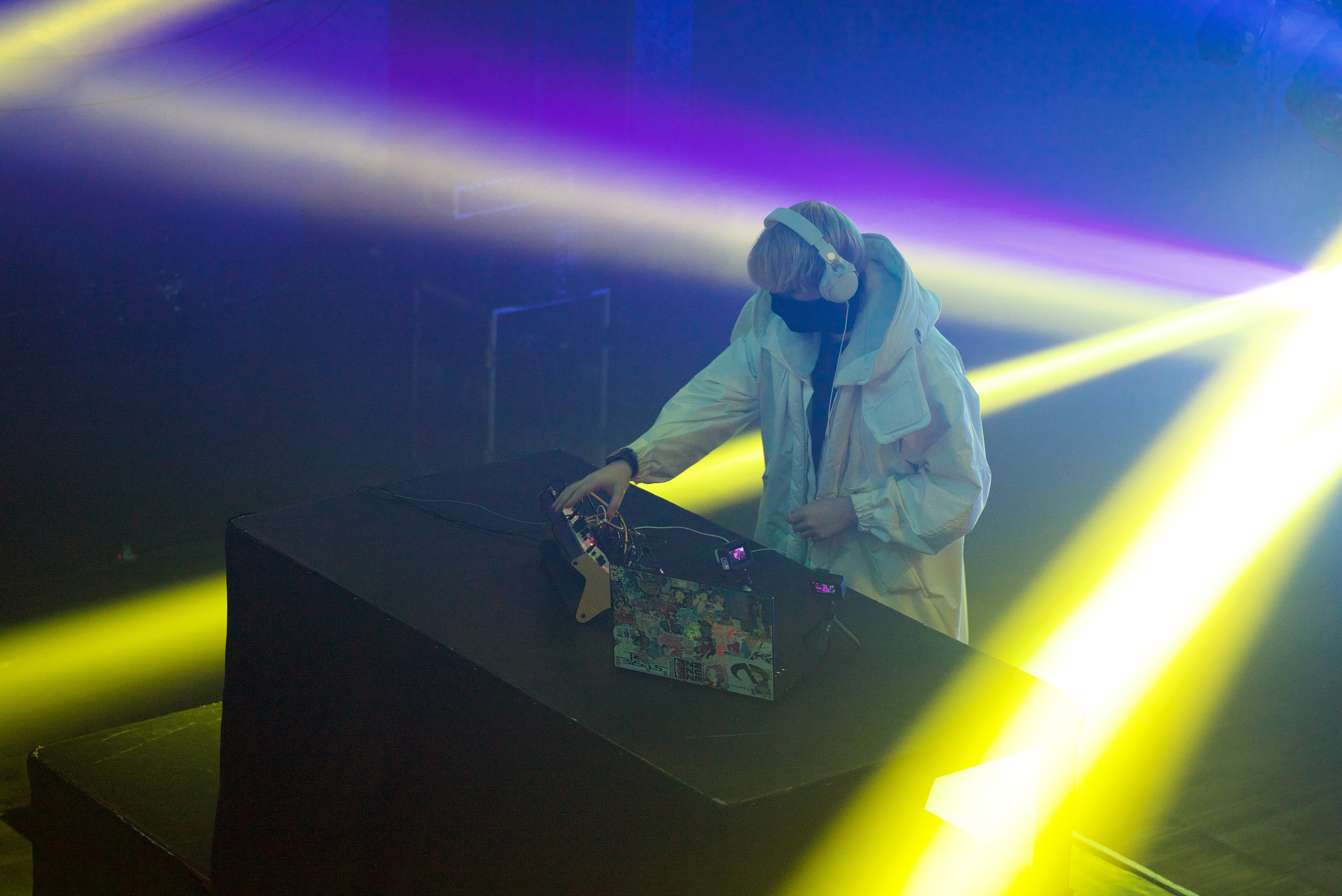
Your artist name “Moe Shop” reflects the Japanese influence on you and your music; how did all that come about?
Moe Shop : While I was still a teenager, I was really into anime, and that was ultimately how I discovered a lot of the earliest Japanese songs and musicians to influence my style. I already had the funk and house influence from my parents, but listening to Japanese music -- ranging from anime songs to artists like TeddyLoid, Tofubeats, or even Vocaloid artists like kz(livetune), all of this helped shape my style.
In 2016 I came to Tokyo for the first time for a DJ booking, and then I just kept coming back -- in 2019, I finally decided to make the move to Tokyo, sharing a living space with all my friends out here. Since all my influences and collaborators are out here, it just made sense for me to be here.
In recent years you have collaborated with many Japanese artists; how is the collaboration process?
Moe Shop : It might seem obvious, but there's definitely the language barrier hurdle. I don't speak much Japanese, so I have to find ways to work around that. Sometimes I get lucky, and the other artist can speak English, or I have a friend help translate my vision for the track. That being said, music is universal, so I do find that when I send over a track, and they give it a listen, there's a level of understanding that allows us to progress.
- "When I start a track, it’s not about making the "Moe Shop Sound"."
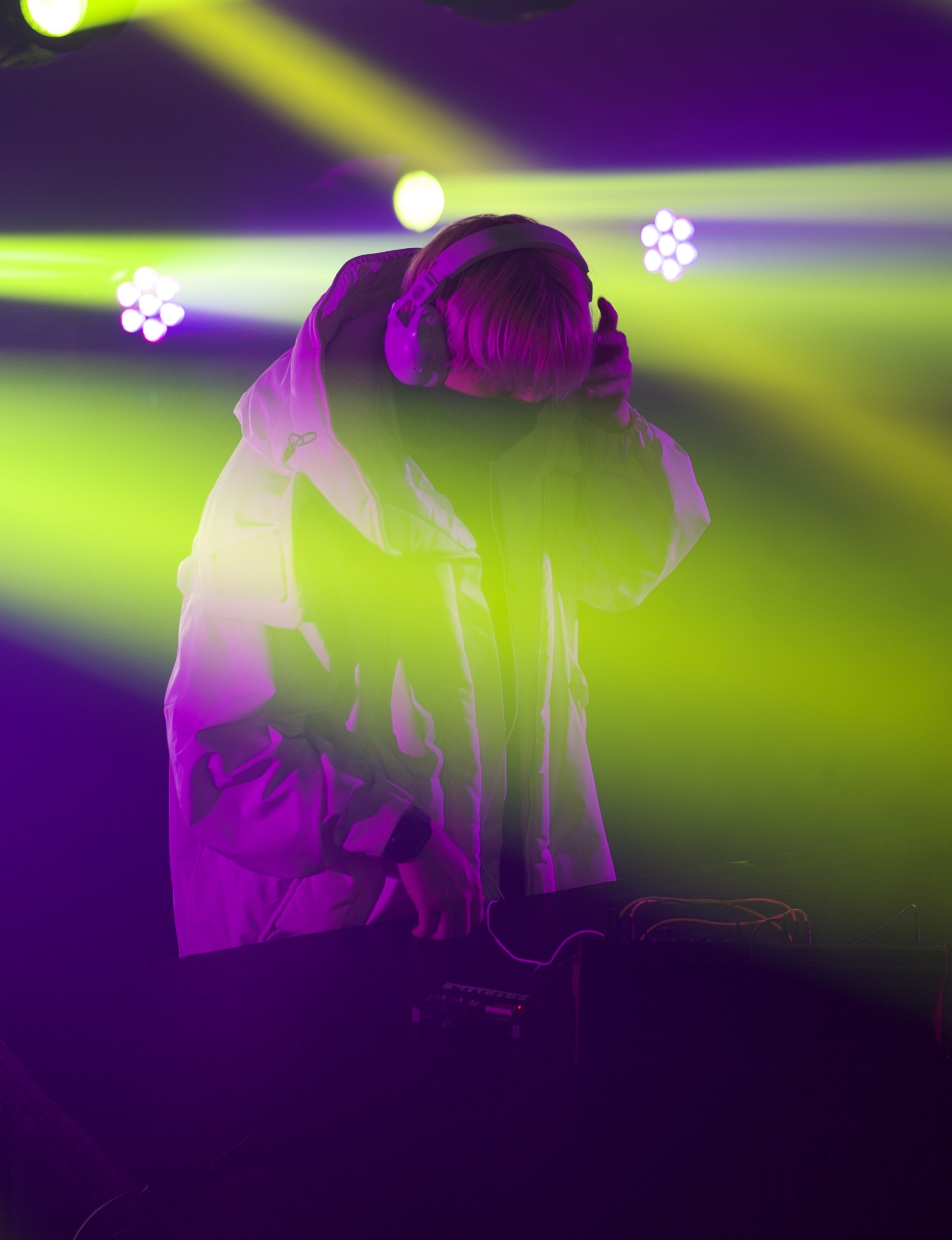
The "Moe Shop" sound is very recognizable; would you say you're self-conscious about it when you make your music?
Moe Shop : It's always funny to me when people get interested in my "style and sound". When I first started making music, I was huge into Complextro, Electro-House, and Nu-Disco, so from my perspective, my sound has its roots in those genres. If I really had to place it somewhere, I guess you'd say my "signature sound" is comprised of all those genres with a layer of cool bass sounds.
There was a long period of time where I tried to fit into a particular genre or sound, but over the years I stopped caring too much about that. I've just been making music for myself, using sounds that sound cool to me. When I start a track, it’s not about making the "Moe Shop Sound", I like to think about what genres and artists I've been into lately and start from there.
In recent years, what are some of the artists and music you’ve been following?
Moe Shop : There's a lot of people I'm going to miss, but lately, I've been inspired so much by artists like Ujico*/Snail's House, Yunomi, Hakushi Hasegawa, Mameyudofu -- all the new generation of talent in Japan has been super inspiring to me.
What’s your starting point when you begin to work on a new track?
Moe Shop : I almost always start with the chords. Whenever I'm about to start working on a track, I'll usually just jam out on my piano and synthesizers to find an interesting progression. When I find it, I'll then take it into my DAW and correct things like the voicings where I can't play them with my own fingers, for example.
Honestly, though, I'm just very obsessed with chords. I mentioned earlier pulling inspiration from Complextro, and while the genre doesn't have the most complicated chord progressions, it does have really interesting voicings, so that's also been a source of inspiration.
When I'm not starting with chords, however, I'll usually be starting off with the melody.
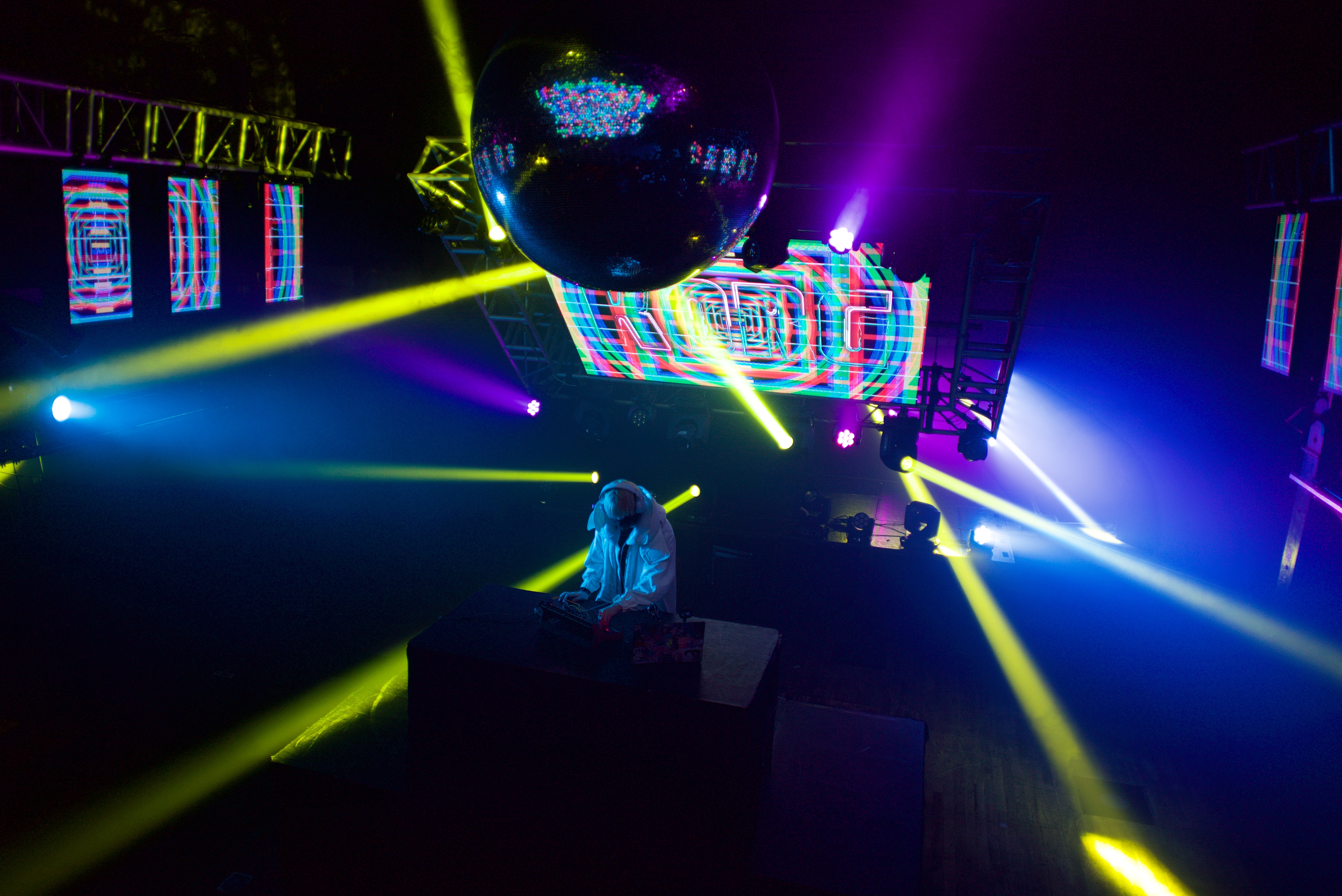
What’s your favorite chord progression?
Moe Shop : I don't know much about the exact naming of chords, but as far as examples go in recent years, I'm a fan of chords from artists like Cosmo's Midnight -- those really cool and cute chords and melodies. There's been a lot of overuse for that sound in more recent years, unfortunately, but I still have a soft spot for those early sounds.
How has your music production environment changed during these years?
Moe Shop : Compared to before, I definitely have a lot more hardware now. Back in 2017, I started going to various Book Off Super Bazaar's (second-hand store) where I ended up finding a lot of great deals on gear. Back then I managed to get myself some vintage analog synthesizers, grooveboxes, and even hardware like the volca sample.
The workflow using hardware is so different from working in my DAW. I really do feel like I can have sessions and create sounds I never could on my computer -- yet, at the same time, I really do feel like they can also complement each other in so many ways.
Using hardware has also been a major factor in the evolution of my music. For example, my "Moe Moe" EP uses a lot of hardware, and my more recent works are basically 50/50 on digital and hardware. Both sources have their pros and cons, but they really do complement each other.
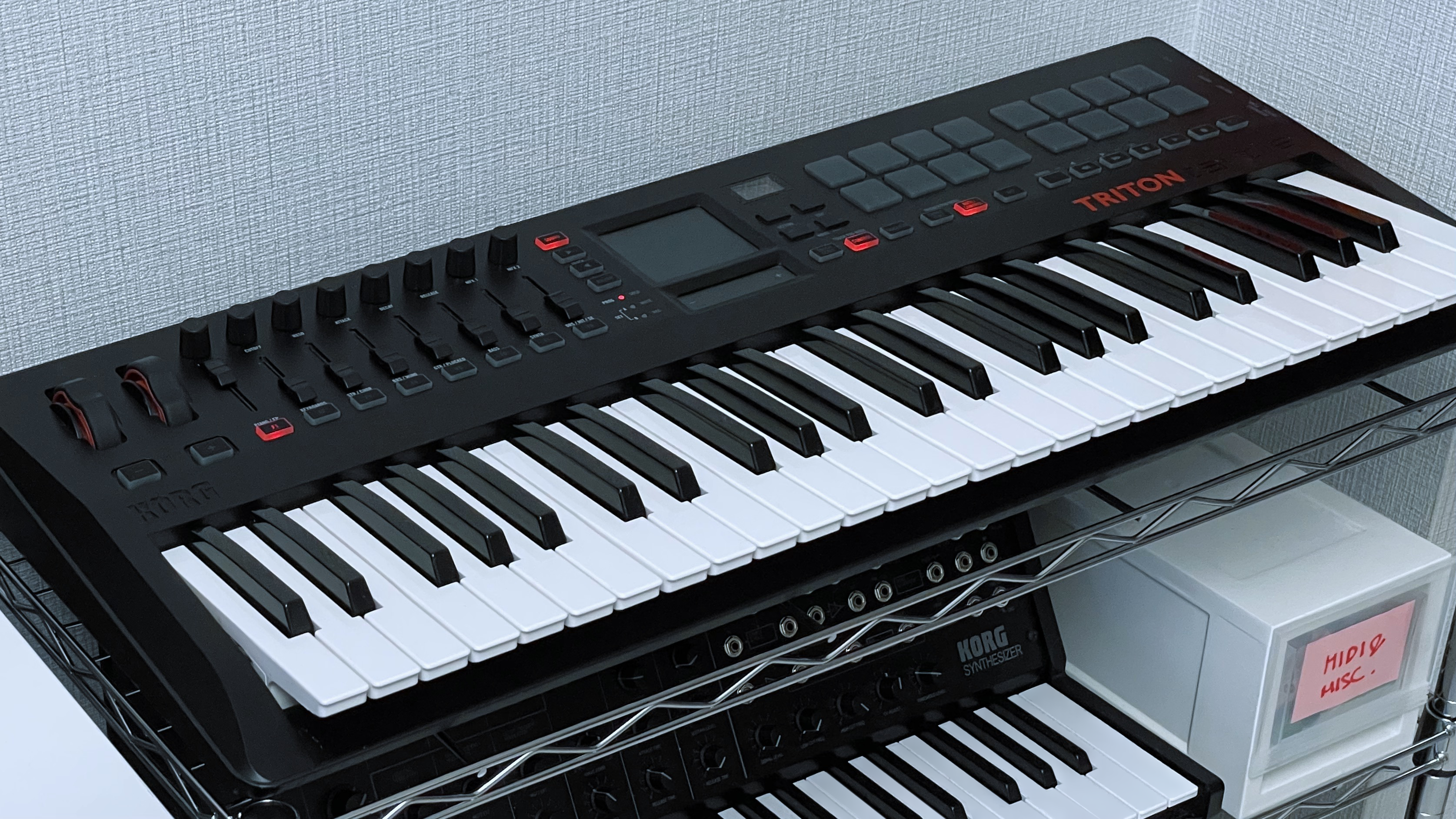
More details about Triton taktile
Some examples?
Moe Shop : Here's a fun fact, the KORG Triton Taktile 49 was actually the first piece of hardware with sound presets that I owned, and I've had it for quite a long time. Working on the "Moe Moe" EP definitely saw it used extensively. For example, on the track "Fantasy (w/ MONICO)", there's a break in the middle that features the "90s Piano" preset on the Triton. I just played it live and recorded it like that, and without really doing much else to it, it just went straight into the track.
It's the same deal with "Notice (w/ TORIENA)", the whole break is using the "DolphinRide" pad preset, and I just used the mod wheel to go up and down semitones.
"Fantasy (w/ MONICO)"
"Notice (w/ TORIENA)"
What are your favorite music production tricks?
Moe Shop : One of my favorite production tips to give is, if you’ve been working on a loop for a long time and it’s just not going anywhere, try transposing it to a different key. It sounds simple, but it really can lead to new discoveries, as well as keeps the sound fresh for yourself.
Another tip would be, don’t be afraid to pursue the style of your favorite artists. Personally, I love pre-shifted claps, because the artists I love all use them. It’s an old-school electro vibe and something that became part of my sound.
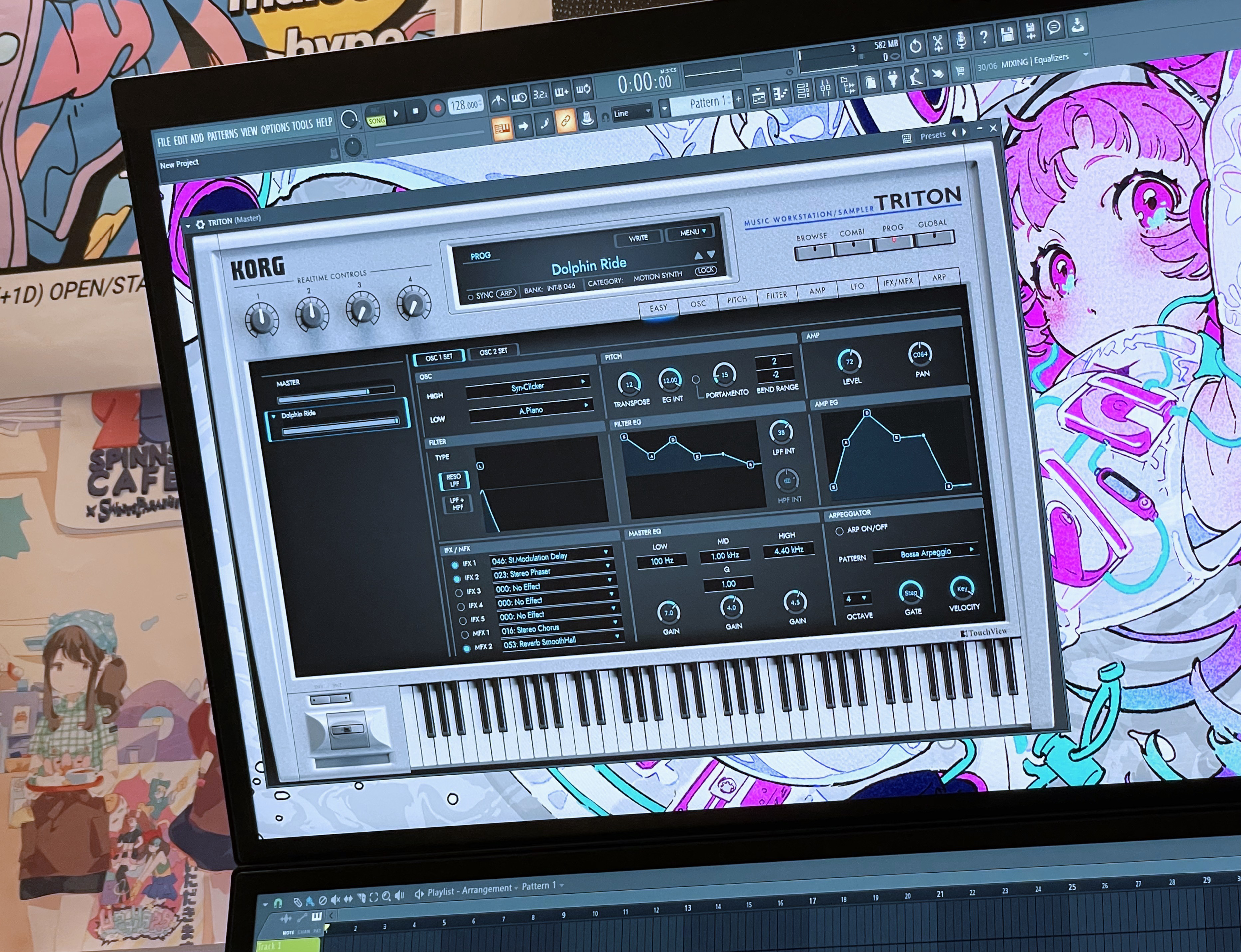
More details about TRITON for Mac/Win
You also use the software version of the TRITON, how does it compare to the TRITON TAKTILE?
Moe Shop : I’ve been using the software plug-in a lot actually -- if I’m honest, lately, I’ve been reaching for it over the hardware, just because it’s so much cleaner.
- "You can get really tactile, and that in itself is a whole lot of fun."
About hardware, you use several volca synths and other small format synths, is the size something important for you?
Moe Shop : Yeah, definitely. I love my old-school synthesizers, but they’re so massive and heavy. I wish I thought of this earlier, but when you start getting into them you really have to take the form factor into consideration. For example, when I get a new synthesizer these days, I’ll always try and go for the module version to save space.
There’s something I’ve always liked about small synthesizers too. I think of synths as cool toys for adults, so for me when I have a rig with several small synths, it’s a totally different workflow. You can get really tactile, and that in itself is a whole lot of fun.
For the demo track you made in collaboration with KORG you used the volca sample and other volcas as well, how was the creation process? Did you create the sample pack first and used it to make the track, or did the track come first?
Moe Shop : When I first got my volca and was filled in on the project, I really wasn’t sure where to begin as I’d never done anything like this before. I started making some simple chords in my DAW, and then fed those into the volca sample. I just spent a while jamming repeating this process to see what would happen.
I tried making a variety of sounds that I could picture myself using in tracks -- piano, synths, tape stop, vocal shots, melodies, and chords. After loading all these samples onto the volca sample, I was thinking about creating the demo track on FL Studio first then recreating it on the volca; then I realized just how easy the sequencer on the device was to use, and it ended up feeling more intuitive to do the whole project from start to finish on it. Even things like side chain, for example, you can find workarounds with envelopes and motion recording. The whole process was a lot of fun.
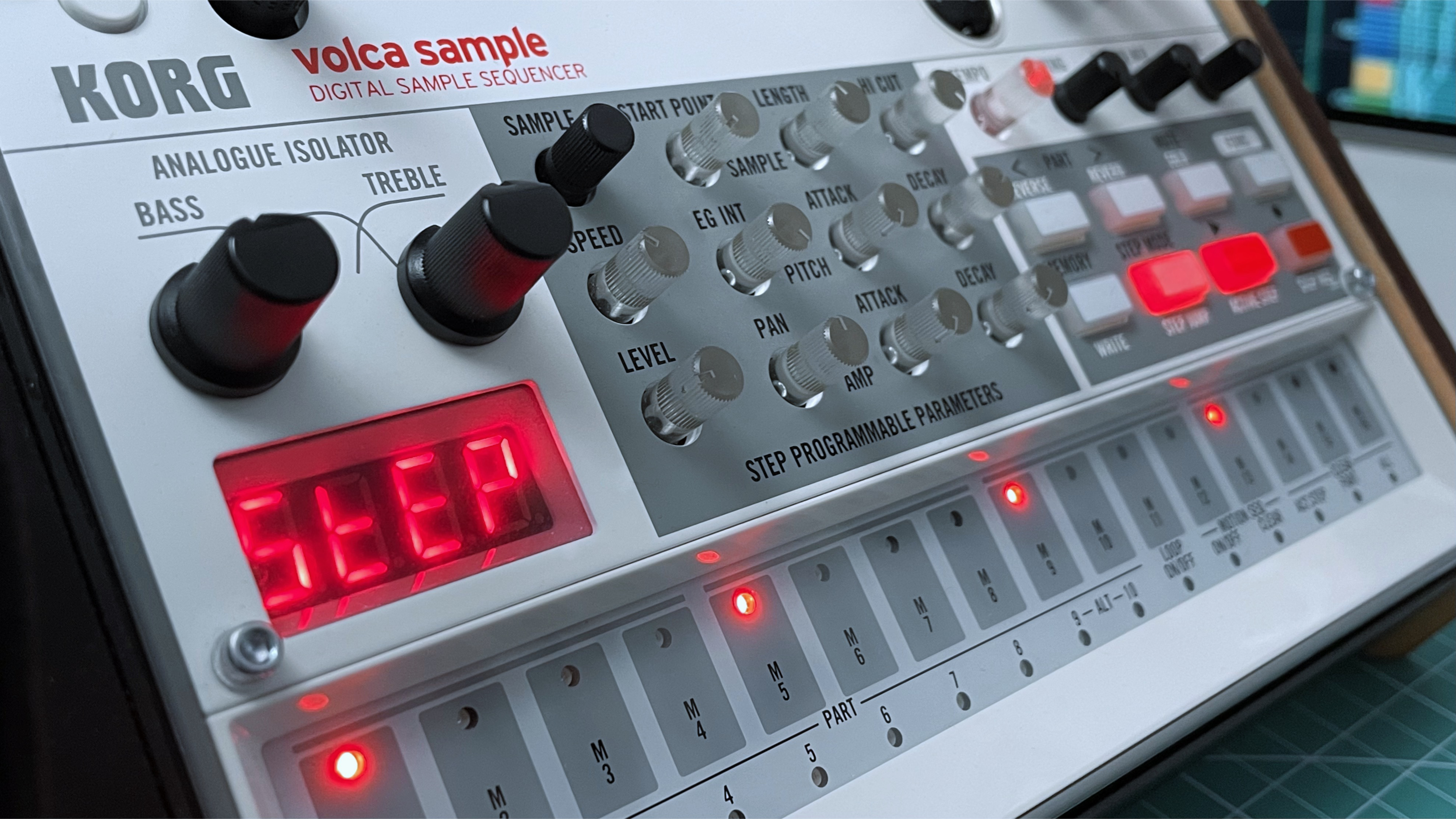
More details about volca sample2
For this track, you were using the new volca sample but you have also been using the OG volca sample for years, how did you feel about the changes and updates on the new model?
Moe Shop : I got the original volca a few years ago, mostly because I wanted to find a new way to play with samples. Having used it for so long, that made me pretty excited about the new features on the second model.
One of the things I really like about the new model is the pattern chain mode, which is infinitely more practical than the song mode on the first model. Working with it, you can really feel how much more freedom you have with the extra slots. I definitely couldn’t have made the demo I made for the volca sample 2 on the previous hardware. There’s just a lot of features that work really well for performance, as well as chaining patterns on the fly.
The addition of the USB is also much appreciated, and more memory for samples is always a great thing. It’s definitely a much more accessible piece of hardware than the original.
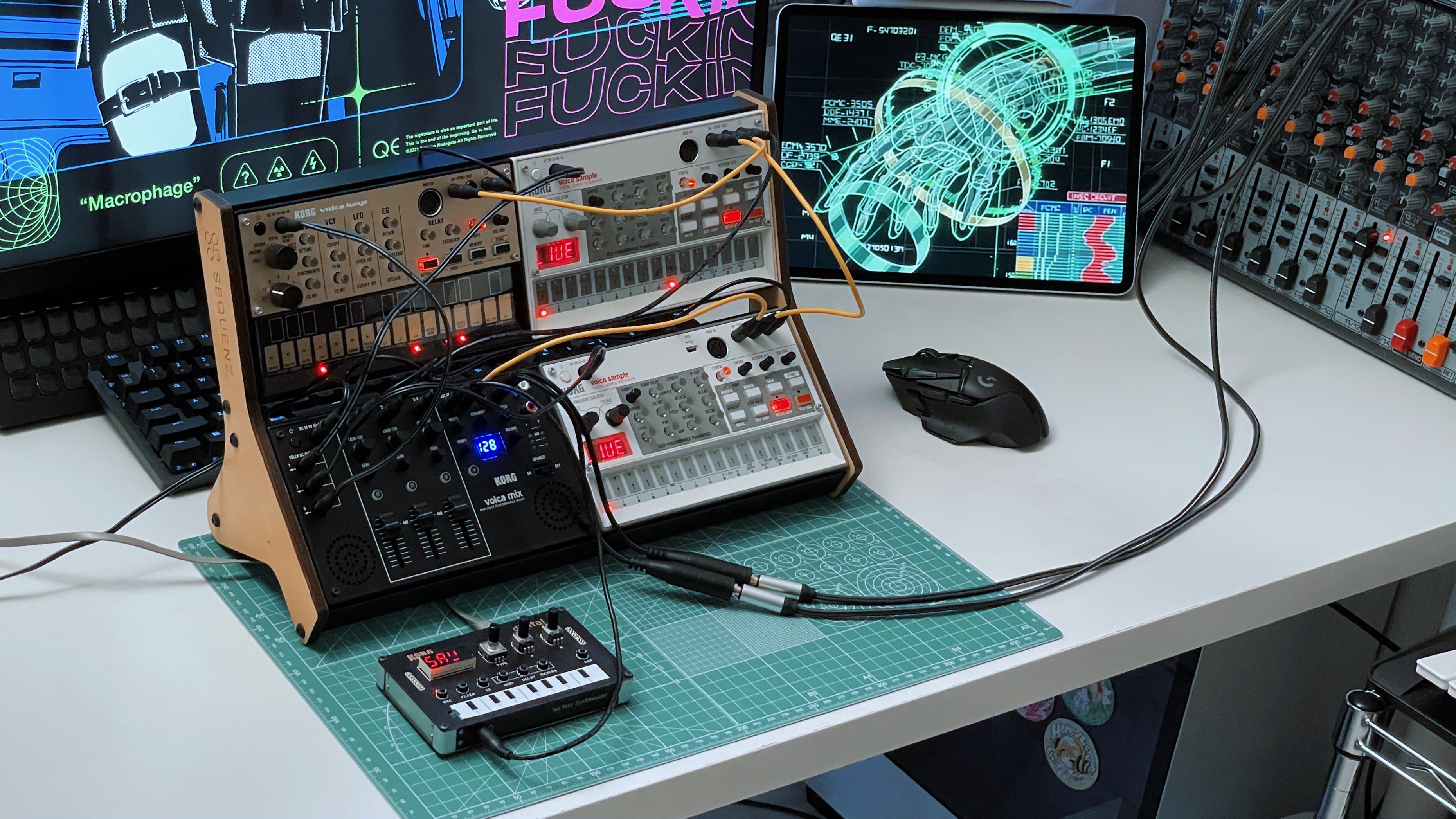
Moe Shop's volca system ; volca sample, volca sample2, volca keys, volca mix and NTS-1
In the track you were also using the Nu:Tekt NTS-1, how do you like it?
Moe Shop : In the demo track, I used it to make the riser sound. I managed to do this by modulating the volume, filter, and resonance on it.
I’ve been playing around with the NTS-1 a lot lately, it’s the smallest piece of hardware I own but it packs a sound as large as some of my bigger synths. The reverb and the delay on it are really good for such a small machine. It’s really interesting seeing it pull off such big pads, arpeggios, and reverbs in the form factor it has.
I honestly just really like processing audio through it too because of the effects it has.
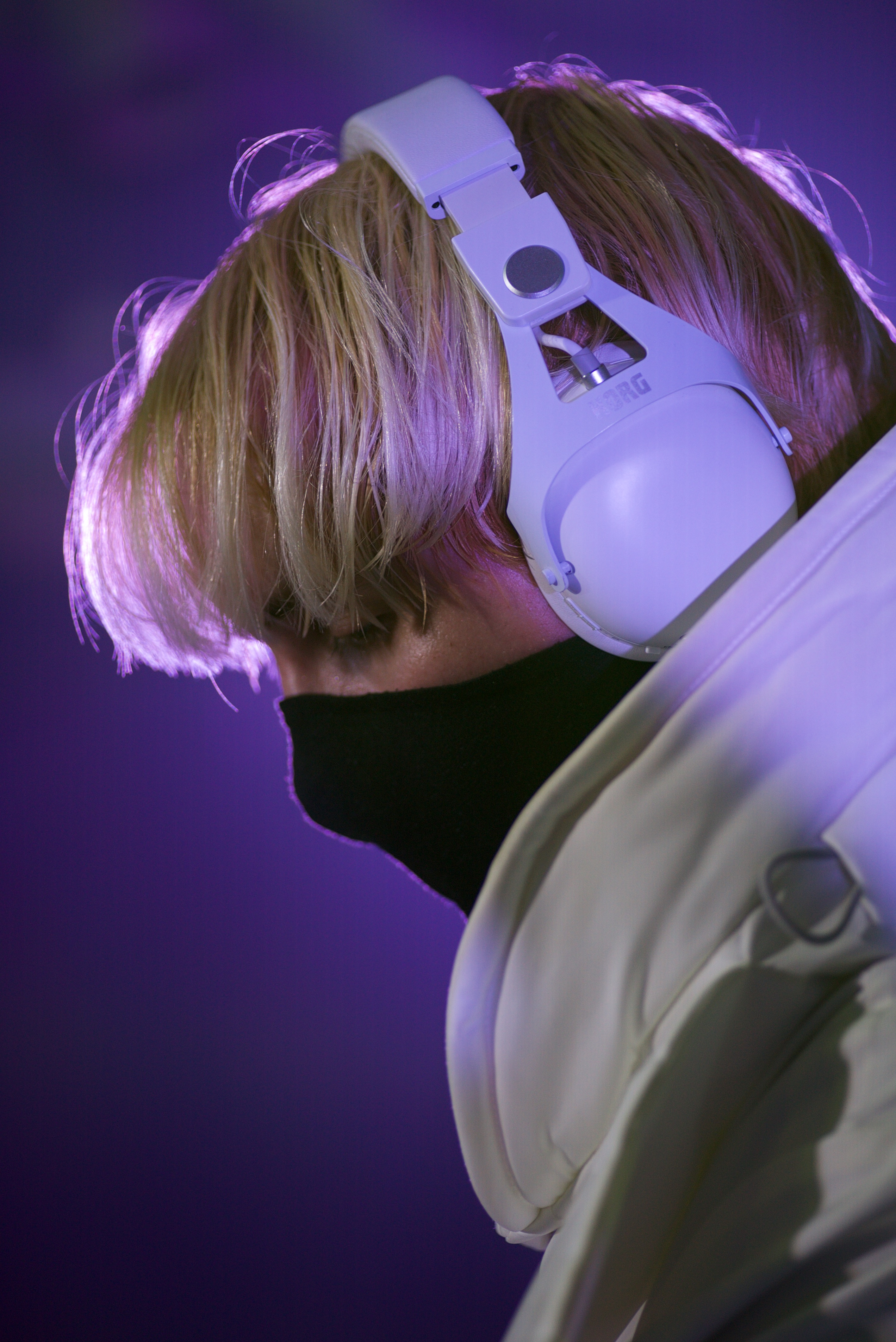
More details about NC-Q1
We saw you playing some live shows this last year. How have you been liking the NC-Q1 headphones?
Moe Shop : They’re honestly really cool. They are the first pair of headphones I’ve owned that have noise cancellation. Before when I’d be doing live sets, I used earphones because you tend to be able to hear your queued track clearer. With that being said, earphones just aren’t as comfortable and tend to get quite claustrophobic. With the NC-Q1’s, those problems are non-existent -- they’re comfortable and you can properly hear your music.
One thing we hear more and more in recent years is hearing loss problems, have you been taking precautions about it?
Moe Shop : Absolutely, especially when playing in clubs I tend to get really conscious about it all. I remember one night when I was performing and the feedback from the sound system was turned way too high, I ended up leaving with a painfully loud buzzing in my ears that felt like it lasted forever. It was scary enough that I really started to reconsider a lot of things.
I always try to be careful, especially with how vital your hearing is for making music. Whenever I’m working, it’s always with my headphones at a really average or low volume. Some people like blasting music, but I can’t do that to myself.
Please tell us about your current projects and future releases:
Moe Shop : I’m finally starting to release a lot of the music I’ve been sitting on which is really exciting. My latest singles "WONDER POP" and "GHOST FOOD" are doing great, and my collaborative EP with Kizuna AI “RADIO LOVE HIGHWAY” is finally out in the wild now too.
I can’t say too much, but I have a lot more that I’m working on so hopefully I get to share all that soon too.
"GHOST FOOD (feat. TORIENA)"
"WONDER POP"
Moe Shop : It’d be incredible to work with Verbal from M-Flo one day. I did a remix of their song “come again”, and I got to meet Verbal once in Chicago. We got talking, and he said that he likes my music, so it would be incredible to work with him again on a nice house track.
Any final message for the readers?
Moe Shop : I’ve been working hard on lots of new music, and it’s finally starting to release, so please look forward to everything set to come out this year! I’m constantly working on new projects, even if the release schedule doesn’t always reflect that.
Moe Shop on social media:
Twitter:
https://twitter.com/korewamoe
Instagram:
https://www.instagram.com/korewamoe
اطلاعات مربوط به محصول
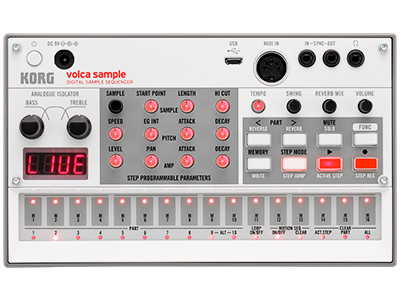
volca sample2
DIGITAL SAMPLE SEQUENCER
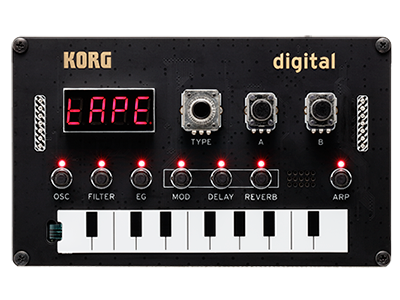
NTS-1 digital kit
PROGRAMMABLE SYNTHESIZER KIT
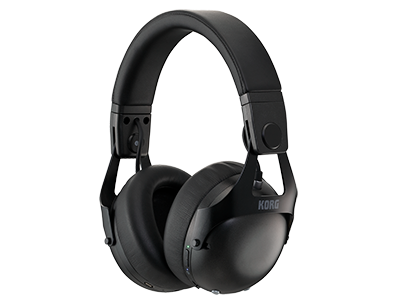
NC-Q1
SMART NOISE CANCELLING DJ HEADPHONES


